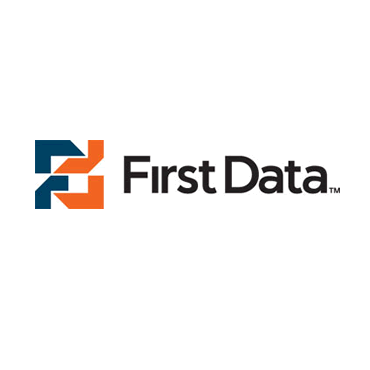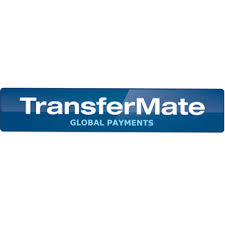Published
- 07:00 am

Leading alternative payments enabler, DOCOMO Digital has today announced the launch of NOMO, a payment platform designed for sharing economy platforms who want to optimise pay-outs for their vendors.
Independently developed, NOMO promises to revolutionise the way sharing economy platforms interact with users selling goods and services on their platform. By connecting with any traditional online payment solution, NOMO provides maximum agility to handle international pay-outs, multi-currency wallet management and best-of-class financial reconciliations reports.
Hiroyuki Sato, CEO of DOCOMO Digital, says: “We believe that the selling experience is as important as the buying one which is why we created the first product specifically designed around the unique needs of sharing economy vendors and suppliers. The ability for vendors to spend their wallet’s balance without having to pay a fee should unlock new opportunities to this ecosystem by creating a close loop effect between participants. In brief, we designed NOMO as a particle accelerator for sharing economy stakeholders”
Operating on a subscription based REST API, NOMO simply integrates to marketplaces transaction system, allowing them to automate pay-outs to their vendor’s wallets. Users can keep track of their funds and transactions using the NOMO mobile app, spend their balance, as well as receive tailored offers from partnering marketplaces.
NOMO also embed safeguarding services and the most sophisticated online KYC / AML features in order to help marketplaces to comply with the evolving European regulation framework.
Sato continues: “Technology can no longer work for just one group of people, it needs to benefit end users and businesses to be a success. We have designed NOMO to fulfil the needs of all sharing economy stakeholders, making the rapidly growing trend a fairer and safer place to transact.”
Headquartered in London, DOCOMO Digital works to provide inclusive alternative payment methods globally to grow merchants revenues on mobile and online.
The company supports stakeholders by building and operating mcommerce and digital marketing platforms , as well as offering mobile commerce consultancy and financial services.
Building on its mobile-first mcommerce leadership in Japan, DOCOMO Digital encourages financial inclusion for consumers, corporations and governments worldwide, aiming to connect 5 billion mobile users by 2020.
Related News
- 02:00 am

Euler Hermes, the world’s leading trade credit insurer, today announced an innovative partnership with fintech credit risk analysis company, CRiskCo.
With a focus on revolutionizing factoring, trade and supply chain finance, CRiskCo uses state-of-the art artificial intelligence (AI) credit analysis and fraud detection processes.
Christophe Spoerry, Euler Hermes Digital Agency (EHDA) co-founder said, " EHDA and CRiskCo are working together to evolve trade credit insurance and risk management, particularly at the transaction and single invoice cover levels. This has the potential to offer small-medium enterprises (SMEs) significantly more protection when doing business, by providing innovative, simple and affordable customer analyses.”
EHDA recently launched its first breakthrough product – Single Invoice Cover - which protects companies from non-payment by business customers. Cover is provided transaction by transaction while optimizing end-to-end supply chains and extending optimal credit terms to buyers. Based on a proprietary application program interface (API), it creates a seamless process for businesses, while facilitating a comprehensive and granular management of credit exposure.
CRiskCo uses its strength in harvesting and analyzing data to develop smart algorithms that can evolve the underwriting capabilities within the Single Invoice Cover product. Based on invoice-level data, CRiskCo reviews accounting data and applies prediction analytics and machine learning algorithms to provide businesses a credit score that assesses the probability of business success or default. The company helps vendors and financial institutions reduce underwriting time and costs using big data processing and cloud infrastructures. It monitors abnormal behavior of clients and clients’ debtors to predict fraud, and alert partners to limit their exposure.
Related News
- 01:00 am

Trade Interceptor, the most-searched-for mobile trading app has announced the launch of live FX trading. The apps’ global user base will benefit from full front-to-back functionality of the app, right from account creation, charting and analysis to placing trades and funding & withdrawals.
The live trading feature, which is powered by ThinkMarkets®, a leading multi-asset broker dealer, offers users some of the best trading conditions in the market. ThinkMarkets®, and now Trade Interceptor users, can benefit from ThinkMarkets® global infrastructure, pricing and liquidity.
Trade Interceptor is a leading mobile app that offers FX and CFD traders one of the largest, in-depth and most sophisticated selection of tools for charting and technical analysis, with over 80 indicators and 50 drawing tools. The award winning app has been the most searched-for online and is available across the major mobile operating systems including the iOS and android systems.
A spokesperson for TF Global Markets (UK) Limited (ThinkMarkets®) commented: “As one of the world’s most sought after charting apps, Trade Interceptor has positioned itself as the preferred software for charting & analytics, however it lacked a cutting-edge trade-execution component. We have filled this void through integrating our vast trading infrastructure to offer some of the best conditions in the marketplace, for Trade Interceptors’ global-user-base.”
ThinkMarkets, established in 2010, has developed its trading eco-system to support the needs of the global FX trading community. Since inception, the firm has been focused on offering a seamless trading experience with full-automation and digitisation at the core of its offering & strategy. The latest additions and enhancements to Trade Interceptor support this vision and offer a unique customer journey & experience.
Users of the app can complete a live-account application in minutes, deposit and fund their account through a range of easy-to-use payment methods directly from the app and place a range of orders and trades in the live-markets, all through the app itself.
The spokesperson added: “Traders need tools and functionalities at hand, and to facilitate this we’re offering a complete one-stop solution through the app, thus removing any need to access outside systems and get distracted.
A Trade Interceptor user is able to capture fast-moving market events by having every aspect of their trading available through the app. It’s quick, it’s simple and most importantly, the trader is in control.”
Related News
- 08:00 am

The rise of global commerce is creating an increasingly borderless economy, and businesses need to provide the payment method their customers prefer, regardless of regional and cultural preferences.
To meet this growing need, today First Data, a global leader in commerce-enabling technology, announced the availability of the First Data® Local Payments solution, which will provide digital businesses and their customers with access to 195 local payment options when fully implemented.
Even in a global, always-on digital economy, payment methods have remained largely regional and country specific. Trust and security concerns, cultural preferences, technological limitations, and political restrictions influence purchasing methods, which vary extensively around the world.
With First Data’s Local Payments solution, a merchant can manage varying online payment methods through a single interface, using a single collection model. Now, a retailer can easily enable a customer in Europe who wants to use a mobile wallet or a customer in Latin America who prefers making electronic cash payments. Local Payments facilitates numerous payment methods, including real-time online banking, direct debit, cash/voucher payments, payment wallets, payout schemes, and more.
“There has been a significant increase in cross-border shopping in recent years, and while geography is no longer a transactional barrier for eCommerce, payment methods can be a hurdle. Today, 57% of global consumers shop across international borders, and separate reports have indicated that as many as half of these people may end a sale if their payment choice is not offered,” said Shane Fitzpatrick, global head of eCommerce at First Data. “First Data’s Local Payments solution empowers businesses to accept payments in the methods their customers prefer, all through a single-source provider, no matter where they are located.”
Around the world, many people do not have access to banking services, which can pose challenges for cross-border transactions. Local Payments provides greater flexibility for payment acceptance, supporting consumer choice. The solution enables businesses to accept payments from their customers in the method they choose, whether they have a bank account or not. Adding Local Payments through a single integration represents a sales uplift opportunity for merchants.
The introduction of Local Payments expands First Data’s robust eCommerce portfolio. First Data now offers a range of solutions for businesses of all sizes, including the recently-announced Global PFAC Program for payment facilitators and the company’s cutting edge Fraud Detect Solution.
Earlier this year, First Data acquired Acculynk, a technology company with unique debit routing capabilities that help merchants reduce their total cost of payment acceptance. First Data’s eCommerce portfolio is available across the First Data client landscape, from multinational corporations to sole proprietors operating online stores.
For more information on First Data’s eCommerce portfolio, or to learn more about the Local Payments Solution, please visit Local Payments. If you are attending Money 20/20 Europe this week, please visit First Data at booth G36 to learn more about Local Payments and our eCommerce solutions. First Data’s vice president of eCommerce product, Peter O’Halloran, will also be presenting on Local Payments at Money 20/20 on Wednesday, June 28.
Related News
- 05:00 am

Related News
- 05:00 am

Global GDP will be 14% higher in 2030 as a result of AI - the equivalent of an additional $15.7 trillion. This makes it the biggest commercial opportunity in today's fast changing economy according to new research by PwC.
Drawing on a detailed analysis of the business impact of AI, Sizing the prize outlines the economies that are set to gain the most from AI.
AI will contribute $15.7 trillion to the global economy in 2030, more than the current output of China and India combined.
Labour productivity improvements are expected to account for over half of all economic gains from AI over the period 2016-2030. Increased consumer demand resulting from AI-enabled product enhancements will account for the rest. The greatest economic gains from AI will be in China (26% boost to GDP in 2030) and North America (14.5% boost), equivalent to a total of $10.7 trillion and accounting for almost 70% of the global economic impact.
- North America will experience productivity gains faster than China initially, driven by its readiness for AI and the high fraction of jobs that are susceptible to replacement by more-productive technologies.
- China will begin to pull ahead of the US's AI productivity gains in ten years, after it catches up on a slower build up to the technology and expertise needed.
- Europe and Developed Asia will also experience significant economic gains from AI (9-12% of GDP in 2030)
- Developing countries will experience more modest increases (less than 6% of GDP) due to the much lower rates of adoption of AI technologies expected (including Latin America, Africa).
"The analysis highlights how the value of AI enhancing and augmenting what enterprises can do is large, if not larger than automation," comments Anand Rao, Global Leader of Artificial Intelligence at PwC. "It demonstrates how big a game changer AI is likely to be - transforming our lives as individuals, enterprises and as a society."
Included in the analysis, the PwC AI Impact Index pinpoints three business areas with the greatest AI potential in each of eight sectors. Areas identified include image-based diagnostics, on demand production and autonomous traffic control.
Overall, the biggest absolute sector gains will be in retail, financial services, and healthcare as AI increases productivity, product value and consumption. By 2030, an additional $9trn of GDP will be added from product enhancements and shifts in consumer demand, behaviour, as AI driven consumption gains overtake those of productivity.
Gerard Verweij, Global Data & Analytics Leader, PwC, comments:
"No sector or business is in any way immune from the impact of AI. The impact on productivity alone could be competitively transformational and even disruptive. Businesses that fail to apply AI, could quickly find themselves being undercut on turnaround times as well as costs and experience, and may lose a significant amount of their market share as a result.
"The big challenge is how to secure the right talent, technology and access to data to make the most of this opportunity."
The analysis underlines how the scale of the opportunity of AI needs to be underpinned by both more robust governance and new operating models to realise its full potential. A recent paper from PwC UK on Responsible AI warned effective controls need to be built into the design and implementation phase to ensure AI's positive potential is secured, and address stakeholder concerns about it operating beyond the boundaries of reasonable control.
Related News
- 03:00 am

Gemalto, the world leader in digital security, is launching the Gemalto Assurance Hub, a groundbreaking approach to fraud prevention in online banking. Powered by machine learning, it analyses the profile and the behavior of customers in real time. The platform only activates additional authentication measures when required, providing a smooth user experience.
Banks are delivering a growing number of digital services. In doing so, they are also subject to more sophisticated cyberattacks. Banks need to distinguish genuine users from potentially fraudulent ones, thereby giving legitimate customers a hassle-free service and blocking unauthorized users. Financial institutions must also comply with the latest banking regulations such as PSD2 or FFIEC*.
Gemalto Assurance Hub is based on big data; processing millions of transactions built from thousands of attributes (such as device profiling, location, user behavior, biometric data or keypad style) to analyze behavior in real time and trigger appropriate authentication checks when needed. For example, if someone makes a high-value transfer from an unusual location, then additional biometric authentication will be requested to validate the transaction, such as fingerprint or facial recognition. Users benefit from non-intrusive security within a trusted environment.
"A recent Gemalto study showed that 44% of consumers would leave their bank in the event of a security breach, and 38% would switch to a competitor offering a better service. At the same time, consumers suffer from both unjustified rejection and excessive authentication steps when banking online or on mobile," said Bertrand Knopf, Executive Vice President Banking and Payment from Gemalto "The challenge is to minimize and simplify security procedures, without compromising trust in the digital banking domain. This is what the Gemalto Assurance Hub does so easily."
How is the Gemalto Assurance Hub different from existing banking fraud prevention systems?
The Gemalto Assurance Hub is the only solution that offers banks a single platform which integrates best-in-class fraud detection technologies. It comes with a single policy and fraud intelligence console.
The platform uses a flexible hub approach – it can easily integrate banks' existing solutions as well as evolving over time to include the latest fraud protection technology.
*PSD2 - Revised Payment Service Directive defined by the European Banking Authority
FFIEC - Federal Financial Institution Examination Council Appendix analyzes risks and recommends
mitigation in the retail payment area
Related News
- 08:00 am

TransferMate, a market-leading provider of international payment solutions has embarked on a project with Accuity in preparation for significant global expansion. TransferMate, having secured global regulatory approval and built a technological platform that allows businesses to send and receive payments through a single portal, has selected an Accuity solution to add further immediate validation of its transactions to reduce errors and improve accuracy. This will save TransferMate time, drive efficiency, and help to safeguard its reputation. The project supports the company’s vision to accelerate the speed of transactions and optimise the overall experience for its customers across the USA, Canada, Europe, Australia and New Zealand.
Neil Tagg, Director – Business Solutions Group at Accuity said: “TransferMate enables businesses worldwide to send and receive foreign currency payments and it is crucial that their processes are fast, accurate and reliable. The integration of Accuity global payment data within TransferMate’s core payment systems removes the need for manual intervention and enables the business to scale seamlessly as its customer base expands at a rapid pace across all key markets”.
Sinead Fitzmaurice, Co-founder of TransferMate said: “As the leading innovator in the competitive Fintech space, TransferMate stays ahead of the market by continuously looking for new ways to streamline and improve. This ethos results in our 35,000 customers receiving the fastest service available, as well as allowing our business to adapt and grow as demand increases and customer needs change. By collaborating with Accuity, we have achieved significant efficiency savings and the benefits are passed on to our customers.”
TransferMate is using the Bankers Almanac Global Payment File Plus and Bankers Almanac IBAN Complete from Accuity within its treasury portal, used by clients to send and receive cross-border payments. These solutions automatically validate payments information as it enters this portal. This enables TransferMate to reduce the time spent manually inputting and validating payment data, and investigating and repairing delayed or failed payments.
Related News
- 09:00 am

Life is about to get tougher for money launderers. One of the new government’s first tasks will be to approve draft regulations to implement EU 4MLD[i]. These new regulations, with their more rigorous approach, apply to banks and other relevant persons[ii]. One of the major changes is the need to thoroughly search for adverse information on potential and existing customers and to evidence this has been done. Carrying out Customer Due Diligence (CDD) manually on entities which are abroad is particularly demanding.
Today RegTech company Kompli-Global launches Kompli-IQ™, a unique search platform with the technology and expertise to meet these challenges.
Kompli-Global CEO Jane Jee, who is also a barrister, says: "Companies will be questioning how they can comply efficiently and cost effectively with the new legislation, particularly the new level of searching/monitoring. The starting point has to be to want to tackle money laundering because it is the right thing to do."
Searching for adverse information has become far more difficult given the explosion of information on the web, which makes it almost impossible to hold this amount of data in structured databases. The alternative, manual searching of the web, is very time consuming and often hit and miss with important information regularly overlooked or hidden from researchers. Using Artificial Intelligence (AI) to judiciously search the World Wide Web and directories invisible to many search engines, such as Google, produces quicker, more accurate results allowing the records found to be saved and future searches scheduled, so the bots can do all the hard work leaving the researcher to simply view any new results found.
To access this information Kompli-Global has developed Kompli-IQTM - a multi-lingual, licensed software as a service (SaaS) search platform. Using proprietary machine learning technology, Kompli-IQTM interrogates a wide variety of global data sources on the web for published adverse information on individuals and entities.
A company's or individual's name will be cross referenced against hundreds of search terms such as: court, fine, bribery or scam. Kompli-IQTM filters the data and search results are rapidly assessed, ranked and sorted. Additionally, these searches can be carried out in the right foreign language where the individual or company has associations outside of the home jurisdiction. Kompli-IQTM forms a key weapon in enabling companies to accept the vast majority of customers who do not present a risk quickly and easily.
"In today's world, it is virtually impossible to conduct the required searches without harnessing the power of Artificial Intelligence (AI). If you try it will be expensive, inefficient and inconsistent. Above all, adverse information will be missed," explains Jane.
The new Regulations introduce a more rigorous approach to Customer Due Diligence and Enhanced Due Diligence and have broadened the scope of Politically Exposed Persons (PEPs)[iii] to include those living in the UK (previously excluded) and their relatives/close associates. Add to this the need to check against sanctions lists and establish the beneficial ownership of companies and it is clear that there is a considerable increase in the amount of work involved.
"To address this, in addition to licensing Kompli-IQTM, Kompli-Global offers Due Diligence reports tailored to our clients’ specific requirements based upon their risk based policies. To compile these reports Kompli-Global interrogates multiple data sources and draws on the local expertise of its extensive advisory community in 66 countries covering 158 regions. With this level of input Kompli-Global can provide the most in-depth information on which companies can base their risk based decisions and, importantly, provide the audit trail that a Regulator will demand," explains Jane.
"RegTech and human expertise can be a powerful defence against money laundering and Kompli-Global is harnessing the power of both - it's the right thing to do," she concludes.
Related News

Robin Smith
Technical Director International at Actiance
As the FCA publishes its near final rules on MiFID II and fines a former investment banker for sharing confidential information over WhatsApp, now is a good time to look at why firms need to be abl see more









